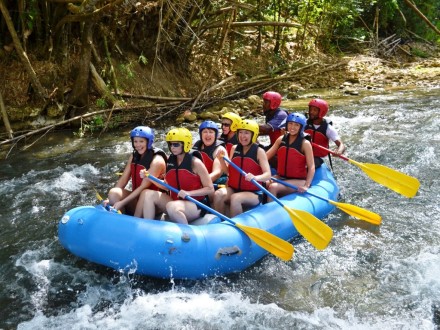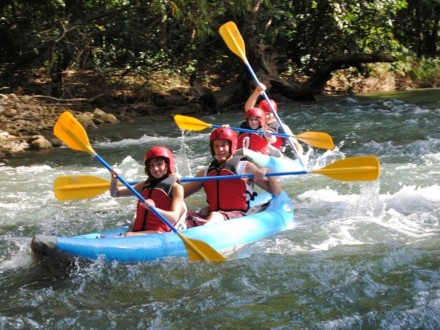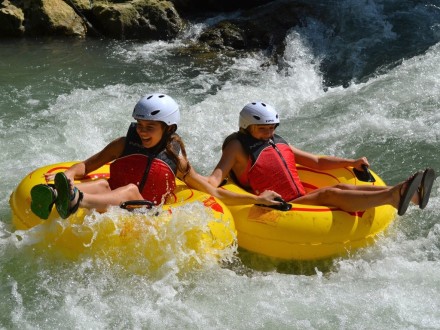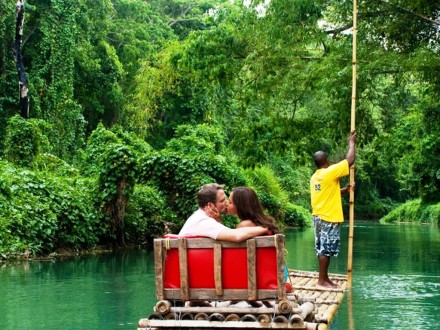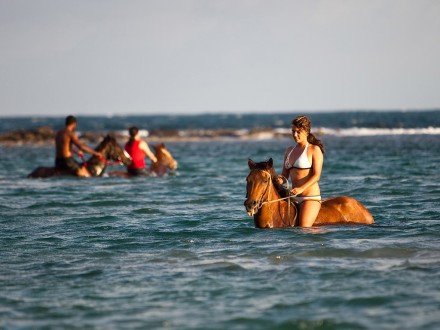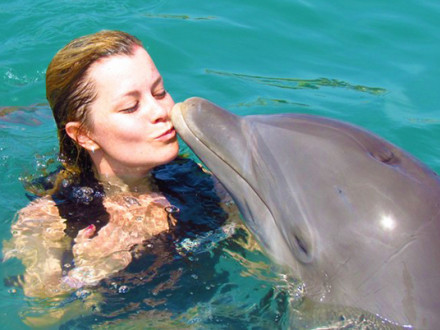
Attractions In Falmouth
Falmouth is the capital of the Parish of Trelawny and is situated on Jamaica’s north coast near Montego Bay. Founded by Thomas Reid in 1769, Falmouth flourished as a county seat and market center for the Parish of Trelawny for forty years.
Jamaica had become the world’s leading sugar producer. The town was named after the birthplace of His Excellency Sir William Trelawny, Falmouth, Cornwall, England, and is noted for being one of the Caribbean’s best-preserved historic towns. Falmouth compares well with Colonial Williamsburg, Virginia in the United States.
Falmouth was meticulously planned from the start, with wide streets in a regular grid, adequate water supply, and public buildings. Interestingly, Falmouth received piped water before New York City. During the late eighteenth and early nineteenth centuries, Falmouth was one of the busiest ports in Jamaica. It was home to masons, carpenters, tavern-keepers, mariners, planters and others. It was a wealthy town in a wealthy parish with a rich racial mix. This was the heyday of King Sugar. Within the parish, nearly one hundred plantations were actively manufacturing sugar and rum for export to England. Jamaica had become the world’s leading sugar producer.
In Falmouth Harbor as many as 30 tall-ships could be seen on any given day, delivering goods and slaves, and loading their holds with rum and sugar manufactured on nearby plantations. Starting in 1840, Falmouth’s post-emancipation fortunes as a commercial center declined. This decline and lack of support for development has left many of its early buildings standing.
The streets are lined with many small houses known for their unique fretwork and windows, major merchant and planter complexes, and commercial buildings, all dating from 1790 to 1840. While Falmouth saw little commercial advancement after the 1840’s, houses continued to be built. The town’s buildings, the old and the not so old, make up the historic townscape of Falmouth. These shared characteristics weave the varied building styles into a distinctive pattern of early Jamaican architecture, and a critical mass of each variety makes the town an unusually distinctive place. Within the Falmouth Historic District lies the largest intact collection of Georgian buildings – unparalleled in the entire Caribbean.
Our excursions gives you the opportunity to climb the World famous Dunn’s River Falls, Explore the north coast , snorkel, visit Margaritaville, go River Boarding, White Water Rafting, River kayaking, River rafting, Beach Horseback riding, have adventure on Zip line rides, visit a Great house and much more. ??Explore all these great adventures that Falmouth has to offer you!. Please carefully review all our tours and feel free to ask us any questions that you might have.
Listed below are some popular attractions in Falmouth:
Jamaica is full of so many wonders and places of interest, we couldn’t possibly list them all, but we can take you there. If you would like to go to some other location not listed here, please email us or call us with your requests including the name of your Cruise Ship or Hotel, and we will do our best to fill your needs.


